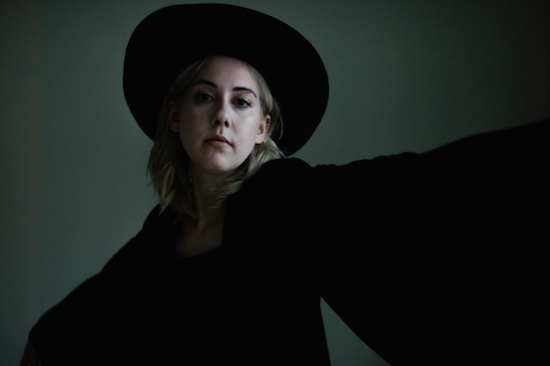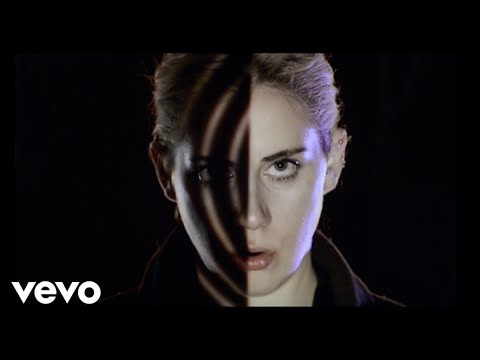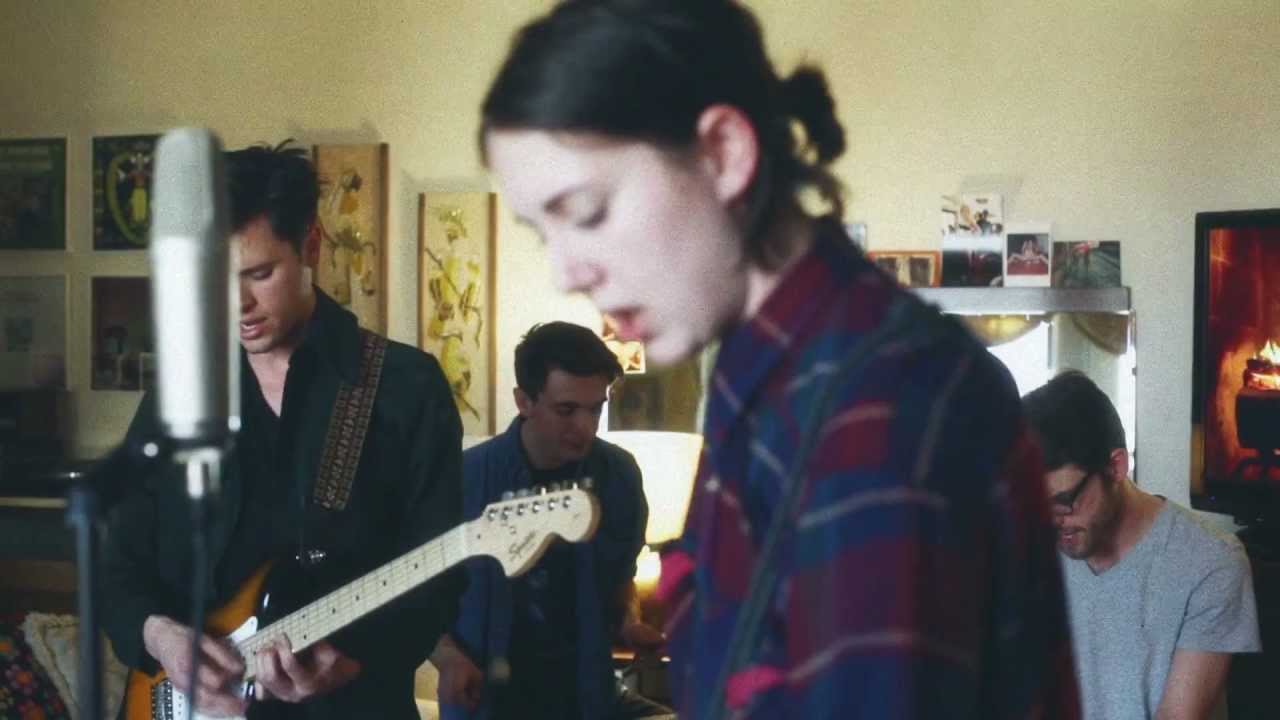Photograph courtesy of Shawn Brackbill
I saw Mackenzie Scott – as Torres – for the first time in 2013 in a small, sparsely populated venue. That night, backed by a bassist and drummer, much remained held back. She treated her songs with reverence, carefully sifting through the tracks from her debut self-titled LP, released that year, and faithfully recreating the subtle grandeur that the album was able to conjure.
It was an honest reflection of an album that addressed its autobiographical themes obliquely in parts. On ‘Honey’, she "was thinking about telling you/ What you’ve done to me" and on ‘Jealousy And I’ she asked: "What am I supposed to say babe?/ I’ll be up all night to tell the truth." She was waiting, wondering, considering her next move, and always questioning her own motives.
But there’s little of that indirectness on her second LP, Sprinter, released earlier this year. The record opens with ‘Strange Hellos’, challenging an embodiment of all that she’s come to disdain: "Heather, I’m sorry that your mother/ Diseased in the brain/ Cannot recall your name/ Heather, I dreamt that I forgave/ But that only comes in waves/ I hate you all the same." From there Scott confronts every demon in her past and present, standing back to observe her childhood in central Georgia, revelling in a newfound independence whilst coping with the loss of innocence that comes with it. She’s moved to New York, started a new life, and experienced the type of sea change that comes with one’s early twenties.
Today, at Rough Trade East, Mackenzie Scott plays alone, with nobody to fall back on. It’s not the way her tour has run so far – she now plays as part of a four-piece – but it’s the perfect context for Sprinter. Her voice is unleashed on ‘Strange Hellos’ and ‘The Harshest Light’ but controlled on ‘New Skin’. The set rises and falls with every one of Scott’s phrases. It’s relentless and grandiose and every bit as emotionally exhausting as it is on record.
After she steps off stage, we sit upstairs at Rough Trade to talk about the album and the decisions that went into its creation.
What’s it like to play these songs live, particularly given the personal nature of the record?
Mackenzie Scott: I’m still having a lot of fun. The songs can be dark, but the adrenaline doesn’t really change, regardless of what it is I’m singing, I still have the adrenaline, it’s still a high. I feel energised even after playing a set like this because it’s just… playing is playing.
You’ve talked about writing as therapy in the past. Does that cross over to playing live?
MS: They’re really different mediums of expression. The writing is therapeutic for me, it’s an introverted process, I’m really inside my head. It’s a really obsessive process. The live show, though, is the opposite. It’s an extroverted process. It pushes me to connect with people, and so it pulls me out of my head and just pulls me out of myself. The live show allows me to transcend myself, because it’s not about me anymore. The writing process is very much about me but then the live show is not. They feel really different.
Is it a case of sharing the burden?
MS: Yeah, totally. That’s kind of terrible, but yeah. When I get to connect with people, I’m not in my head anymore and I like that, that’s nice. It’s a different kind of therapy.
You said you wouldn’t play ‘The Exchange’ live. It’s a brutal song. There’s got to be a point at which you cut off and you can’t share that burden…
MS: It feels that way. I don’t know if that might change with time. It could, but when I wrote it I knew that I probably would never have any desire to play it live. But that could change.
It sounded like it was hard to record, your voice cracks up at points.
MS: It was. It was the hardest song to write for me, the hardest song to record. So yeah, honestly it’s… I just can’t imagine it being easy to do live so I haven’t.
You opened your set with ‘Honey’ [from the 2013 debut], which is an interesting song to play in the context of your new record. It feels quite far removed from Sprinter, thinking about telling someone something, rather than directly addressing people like you do on ‘Strange Hellos’. Where did that transition come from?
MS: I had a lot to say with this record and I guess just personally I’ve become a bolder person in my day-to-day. I think a lot of it came from moving to Brooklyn. I just sort of became an adult and started speaking up for myself and not apologising for myself. It really is a fend-for-yourself kind of world, but living in Brooklyn it’s a very fend-for-yourself place. Maybe it’s made me a little bit harsh but I don’t consider that to be pejorative. And also I’ve just grown up a little bit and I’ve been touring. After touring and coming back and starting to write this new record, I knew what I wanted to put into the record and I just wanted it to be more of a heavy-hitter.
Do you feel at home in Brooklyn? Do you feel you have roots there now?
MS: I feel like I do. It’s a really good place and I have a really good home. I’m in an apartment that I love, I feel safe there and I have friends. It’s actually a neighbourhood vibe, believe it or not. I have my local coffee shop, I see people on the street that I know. It’s very homey.
‘Cowboy Guilt’ is an interesting song when talking about place. There’s a warmth to that track and a nostalgia to it, but also a yearning for something more protective. Is there a trade-off living in New York and writing new music – you get independence but you lose something…
MS: In the writing process, I just thought a lot about my upbringing and my childhood and there were so many elements of it that I realised that I miss. No getting around it, I just miss my family and there’s so much about my hometown that I’ll never get back. I’ll probably never live in that type of a place again because I don’t want to, but there are parts of it that I do want and I don’t know if I’m ever going to get them back. I’m certainly never going to have my parents looking out for me in the way that they once did. When you become an adult you just make that transition and you’re right… it’s fun and exciting to be an adult and exciting to have independence, but once you’re out from under the cover of your family’s protection and love, you sort of have to take a step back and come to terms with the fact that you won’t really ever have that again in the same way. You’ll never be a kid again.
There are a lot of moments where you’re yearning for independence on the first record, at the end of which is ‘Waterfall’, which is a complete bullet of a track. Did that pave the way for the new record? There was a deep sadness to that that you seem to be bringing out here…
MS: Yeah, I’m confronting it more now. I’ve always been a sad person. I’m a happy person too, but it’s a thing in my brain or my spirit or something, I’m just sad and really acutely aware of mortality and loss. So it was a struggle then when I wrote and recorded the first album and I really wanted to do that on the new record but really dig in and really say what I was trying to say. It’s definitely a continuation of that theme.
That track also has the sense of being overwhelmed. It’s even got an obsession with drowning. Is it easy to differentiate that stuff from the day-to-day?
MS: I’ve found that I haven’t been able to escape that feeling of being under water. But I’m not feeling it 24 hours a day. It comes in waves. With that theme specifically – mortality and loss, being overwhelmed by everything – it’s still there, but it helps me. It helps me to write about it and share it with other people. Misery loves company.
There’s something of the church about that. On a song like ‘Mother Earth, Father God’ there was this idea of transgression and sin and the weight of feeling as though you were subverting things. It feels freer on the new album. Is that New York or just growing up and confronting things?
MS: I was less afraid to write this album. It’s not that I was afraid to write the first album, it’s just that there were certain things that I at the time didn’t feel like I could write about, for whatever reason. Whether it was protecting myself or protecting people I love, just generally keeping a veil there. It was a bolder process this time. I felt ready to make this album.
Sprinter is out now on Partisan Records. Torres is on tour in the US, playing Great Scott in Allston, Massachusetts tonight, before returning to the UK for End Of The Road festival on September 4, followed by The Louisiana in Bristol, 21, The Deaf Institute, 22, and London’s Scala, 23; head here for full details




